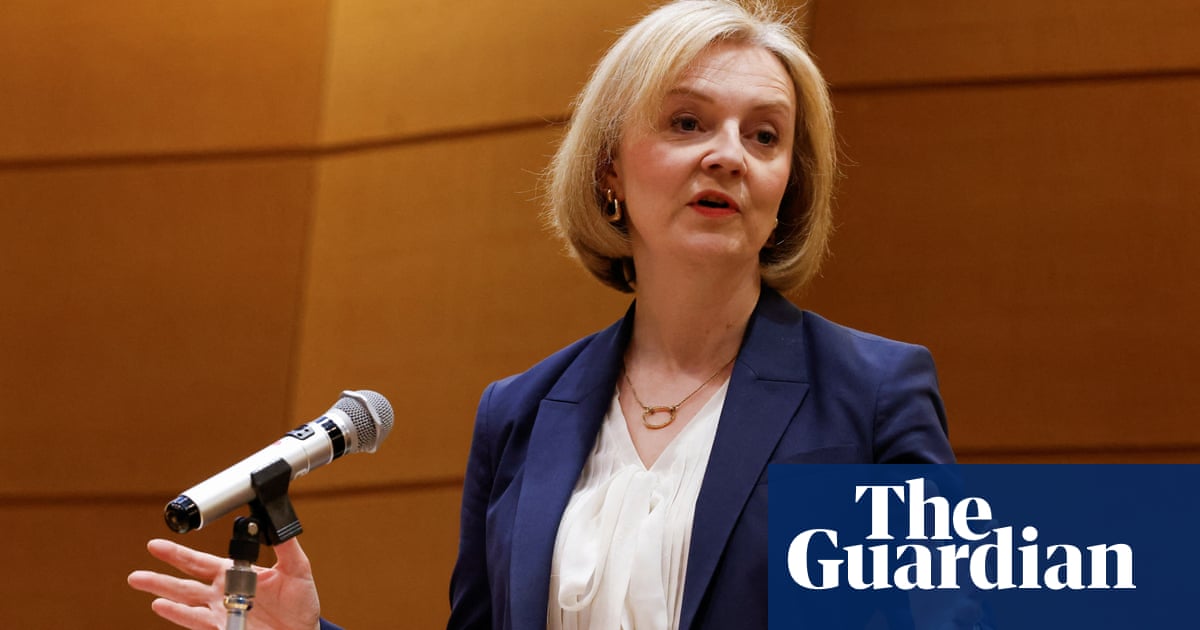
Liz Truss has faced calls to correct publicly her comment that households will not have to pay more than £2,500 for their energy bills this year after government intervention.
It is less than a month since she announced the energy price guarantee, designed to insulate Britons from the worst of the energy crisis caused by rising wholesale gas prices. However, Truss has already created confusion about her own policy. Here, we unpick the situation.
What is the energy price guarantee?
On 8 September, the government announced it plans to cushion the blow from rising energy bills through a revamped energy price cap. The regulator Ofgem’s price cap, which was introduced in 2019 in an attempt to protect loyal consumers from being ripped off, had been due to rise by 80% to £3,549 from 1 October, and was forecast to surpass £5,000 in January. Instead, under Truss’s policy an average annual bill will be capped at £2,500 for two years from 1 October.
What has Truss said?
During her bruising round of local BBC radio interviews on Thursday, the prime minister was repeatedly asked about household finances as the cost of living crisis squeezes budgets. She told BBC Radio Nottingham: “The biggest part of the package we announced is the support on energy bills, making sure that people across this country are not facing energy bills of more than £2,500 and that businesses can get through this winter.” On BBC Radio Kent, she said: “We have taken action by the government stepping in and making sure that nobody is paying fuel bills of more than £2,500.” She made a similar claim last weekend on CNN.
What is the reality?
The £2,500 relates to an average bill for a typical household based on 2019 consumption figures. For those paying by direct debit and on a standard variable tariff, their usage costs will be limited to 34p per kilowatt hour for electricity and 10.3p per kilowatt hour for gas.
Average standing charges will remain at 46p a day for electricity and 28p a day for gas for a dual fuel customer paying by direct debit. Government figures show the average bill for a those living in a detached house under the new energy price guarantee will be £3,300, and £2,650 for a semi-detached house. A typical bill for a purpose-built flat will be £1,750 and £2,450 for a bungalow.
How have people reacted to Truss’ comments?
The consumer champion Martin Lewis laid out the costs for his 1.8 million Twitter followers, asking them to share the post to “stop confusion”. The factchecking charity Full Fact’s chief executive, Will Moy, said it had written to the prime minister on the issue before her latest comments. “She must now publicly correct her mistake to make sure people are not misled about their energy prices and hit with unexpected and unaffordable energy bills this winter,” he said.
Should consumers be limiting consumption?
Truss’s comments risk leading households to believe that they do not need to limit their energy usage. It’s a misconception that pre-dates the latest Truss row fuelled in part by the use of the word “cap” in relation to the whole bill rather than the unit prices. Those who use less, pay less and vice versa. The government has so far stopped short of emulating other European countries in asking consumers to ration their energy consumption this winter amid concern about potential blackouts.












